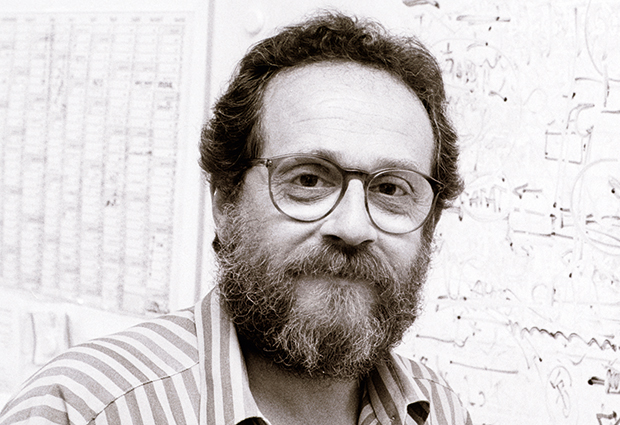
Read the latest Issue
Riccardo Cortese, former head of the Genome Biology Unit, talks about the Ebola vaccine candidate developed by his start-up, and reflects on his successful career in research and industry.

The Ebola vaccine – currently being tested – is based on your work with Okairos, what is special about it?
Traditional vaccines ‘train’ the B lymphocytes into recognising deactivated parts of the pathogen, so they can destroy it more effectively should the body be infected. Unfortunately, this does not always ensure effective protection. I founded the start-up Okairos in 2007 to develop new genetic vaccines, which trigger both T- and B-lymphocyte activation. We started working on the Ebola virus well before the last outbreak in West Africa because it was one of the most dangerous and untreatable pathogens: succeeding with it would be a fantastic proof of concept for our technology.
We used chimpanzees’ adenoviruses as a ‘Trojan horses’ in which we inserted Ebola-specific proteins.
Unlike the human adenoviruses which are rapidly inactivated by our immune system – we have all been exposed to adenoviral infection –, those of chimpanzees are not recognised by our immune system and trigger a strong response, both from the T- and the B-lymphocytes. We therefore used chimpanzees’ adenoviruses as a ‘Trojan horses’ in which we inserted Ebola-specific proteins. We proved the efficacy of our T-cell based vaccines in these animal models, and sold Okairos to GlaxoSmithKline (GSK) so it could be further developed. Now our Ebola vaccine is in a phase III clinical trial involving 30 000 individuals.

What made you move from academia to the private sector?
I sailed from academia to industry and then biotech: each move driven by restlessness, curiosity and a lot of optimism. I’ve always felt curious about my research topics, obviously, but also about how I could apply them, maybe a consequence of my medical training… All of these steps were a jump into the dark.
After EMBL, I directed the Integrated Research Biotech Model (IRBM) in Rome where we developed several drugs that are now on the market. This was a great job, so leaving it to start something new like Okairos was risky, but also extremely exciting. In ancient Greek, Okairos stands for “right timing” and I felt that it was the right time for me to do it. Now, I am again in a position to start a new company, this time dedicated to new level vectors to provide a cure for diseases such as cancer.
I sailed from academia to industry and then biotech: each move driven by restlessness, curiosity and a lot of optimism.
You’ve had a very diverse and fulfilling career, what advice would you give young EMBLers?
In 1981 I founded the Gene Expression Programme (now the Genome Biology Unit) at EMBL, so I was able to develop managerial skills in addition to my scientific expertise. This combination proved very successful during my career. EMBL in general has a very strong reputation – which goes far in industry – and offers many opportunities to its scientists and students. I would advise all EMBLers to make the most of this while working in such an inspiring and invigorating environment.
What is your fondest memory of your time at EMBL?
I fitted well into the EMBL culture as a convert and proponent of the “European mission”, so it was an interesting and intense time for me. I attracted a lot of Italians: we were all in the same corridor, which apparently had the permanent aroma of espresso. The team spirit was very strong: we even trained together at my home to win the prestigious EMBL beer competition against the British and the Germans!
Inside industry: Part II > Alumni in senior positions at the companies attracting the largest numbers of alumni share why they made the move, the challenges and highlights facing them, and EMBL’s continuing role in their career.
Looking for past print editions of EMBLetc.? Browse our archive, going back 20 years.
EMBLetc. archive